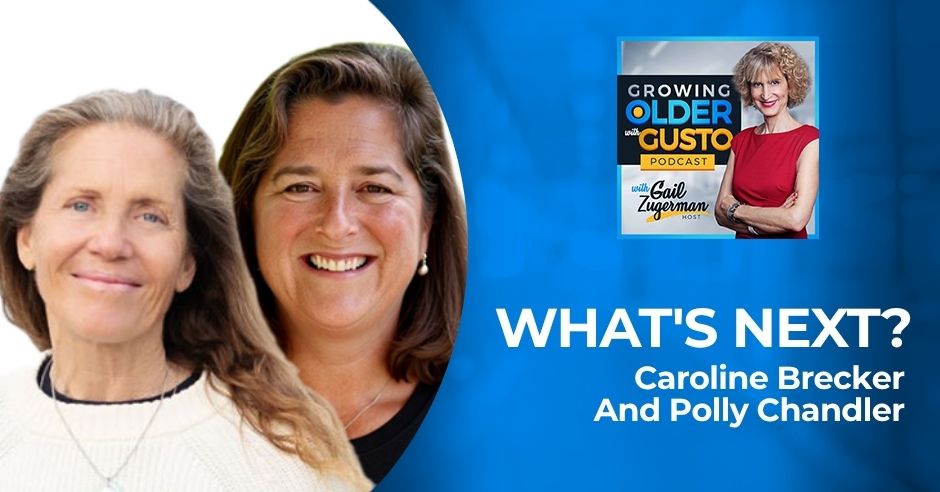
Are you approaching the end of your primary career and wondering what comes next? It’s a common dilemma, but what if there’s a way to embrace this new chapter with purpose and excitement? In today’s episode, we’re joined by two incredible guests who’ve navigated this transition with success. Caroline Brecker, co-founder of Third Half Advisors, and Polly Chandler, a strength coach at the company, share their inspiring stories of how they reinvented themselves after leaving long careers to help others do the same. Caroline, with her extensive finance background, and Polly, a seasoned coach and facilitator, offer unique insights into how we can create the next phase of our lives with intention. Whether it’s finding a new purpose through coaching, consulting, or simply embracing a new path, you won’t want to miss this conversation about reimagining the rest of your life. Tune in to discover how to take that next step and thrive in your “third half!”
—
Watch the episode here
Listen to the podcast here
What’s Next? With Caroline Brecker And Polly Chandler
How To Rewire Yourself
How many of us have reached a point in our lives where our primary careers are coming to a close and we’re trying to figure out what to do with the rest of our life? We have two guests, a bit of a switch who made the transition and started another great phase of their lives. Caroline Brecker is the Cofounder of Third Half Advisors. Her background includes many years in finance with Stints at JP Morgan Private Bank where she oversaw $40 billion. Polly Chandler is a strength coach at Third Hald Advisors. Her background as a seasoned coach, curriculum designer and facilitator who played a key role in launching one of the first NBA’s sustainability in the country led to her involvement with Third Half Advisors. Welcome to the show.
Thank you, Gail.
Thank you.
Many of us reach this point in our lives where we’re in endpoint with our career and so many people I’ve talked to the years, flounder because you’ve been successful, enjoyed a career but you want to do something else and don’t know what it is and what to do. Tell our readers, if you will Caroline. Where were you in your life when you decided to retire from JP Morgan Private Bank and you need to figure out what’s next?
Excellent question. I retired from Morgan after decades of being there. The organization had evolved to a much bigger enterprise and was a place that I probably was ready to move on from in terms of my own personal growth. Coincidentally to that, my husband was retiring and a dear friend of mine, Campbell Garish who is the cofounder of Third Half was also stepping back from his firm. While I was doing consulting work, I was watching these two try to navigate the stepping back part and it was amazingly complicated.
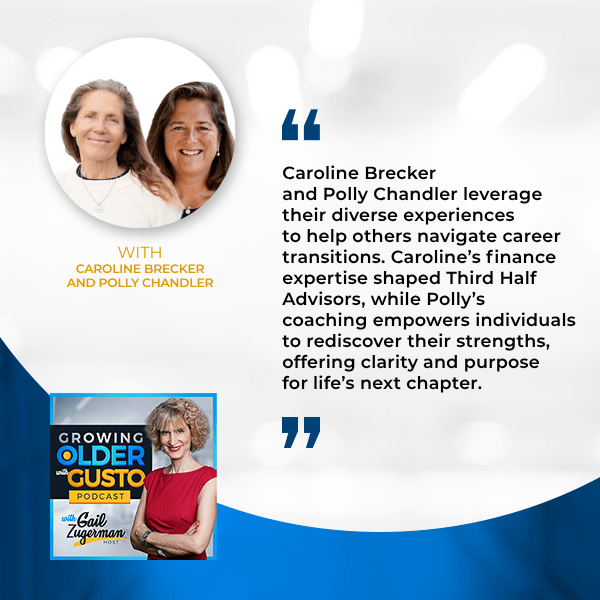
Need For Transition Support
I was surprised at how many fragmented resources or lack of resources there were out there, especially in a trusted environment way. Again, our longevity has changed so dramatically. Over the last century, we’ve gained 30 years practically in life longevity and to know the people would be floundering around for not just months but potentially years was striking to me and Campbell and my husband. It spoke to a need in the marketplace for some community to help people have a little light structure in thinking through this next chapter. It was a very compelling need and something I found deeply interesting from my own work with individuals and families.
Polly, how about you?
My transition very much came from an intentional activity of logging what was energizing and what was draining me. I kept track of it for several months while I was still the Chair of the Department of Management at Antioch University. Over time, I saw a pattern, which was what was energizing me most was coaching and mentoring students and faculty and transitions. What was draining me were some of the academic responsibilities and committees and things like that. I took a giant leap, reinvented myself and began my next career as a coach and facilitator then had the happy coincidence of meeting Campbell, and Caroline and became part of the team.
How did you all meet? How did you meet Carolina and Campbell?
They asked me to help with a workshop they were delivering because they had another facilitator who I had taught with. Unbeknownst to me, what I was stepping into, I was just headed off to Connecticut to do an hour and a half workshop for Third Half Advisors and before you know it, I was a major part of the team. I am honored to be a part of the work to help people find their way and get inspired and energized for their futures.
Polly, it sounds like you had a very logical road map that you set up for yourself to figure out what to do next. Caroline, did you have that too or did you was your approach a little different?
The irony is, that’s the benefit of being a coach. Polly has a set of tools that she had was thinking through to make the transition for us, the people if you will. That’s part of the challenge that we, Campbell, myself, my spouse, and other people in our peer didn’t have a set of tools to help navigate this. People are so in love with the autonomy and freedom they have when they transition but, in some ways, they need that life structure and toolset also to help navigate.
Our society has created this arc where we’re considered “done” in our late 50s and early 60s, yet we potentially have an entire lifetime ahead of us to pursue meaningful work and purpose.
It’s a real teeter-totter between enjoying the freedom one has and creating a plan for yourself. That’s what in Third Half Advisors we spent a lot of time creating. It’s those tools and light structure to help people think through the blueprint that Polly just mentioned. It has been transformative for the people that we work with. Again, when I was transitioning as well as Campbell, it didn’t seem like there was a lot out there to help people with that light structure. They’re lots of tools for leaders who are actively involved in their workplace. In fact, there’s lots of tools from adolescents in helping with transition but a remarkably few tools as page.
Longevity & Lack Of Past Tools
To your point about our longevity has changed so much, that’s part of the reason that we never had those kinds of tools available to us. For me in my case, I had a marketing research consultancy for years and I got out of it because the industry was changing and my life had changed. I was on a vacation and they often say something you get ideas when you’re taking a shower or flying in a plane or whatever. I was listening to a show of somebody I had met in New York and I thought, “I could do that. That’s what I used to do. I used to interview people.” That’s how I got started. It got the wheels cheering but it wasn’t like there was a tool set out there for me either. It took a while.
Gail, to your point about the longevity piece. If you’re 60-year-old, you have a greater than 50% chance of living to 90 plus. That’s a lot of time. Our society is created this arc of we’re all done in our late 50s and early 60s, but we almost have a lifetime left potentially of what we could be doing. Society hasn’t quite addressed that and we need to create more forums, trusted environments and tools for people to address all that time. What we found is what made people very successful in their careers in a quite different tool set for this next phase where people are grappling with authenticity. They want to be in a more portfolio life strategy, meaning it’s not just one thing they’re doing but a variety of things.
I was going to add. The one thing we’ve noticed is that people don’t even find the word retirement fits with this longevity.
We’re rewiring.
Transition and we make transition through 2 or 3 more times before we pass away. The thing is, even that model of retirement doesn’t fit with this model of longevity.
On your website, you use the metaphor like a rugby match. I was wondering how you compare life to rugby match. I thought that was a great metaphor. Could you tell our readers a little bit about how that came about?
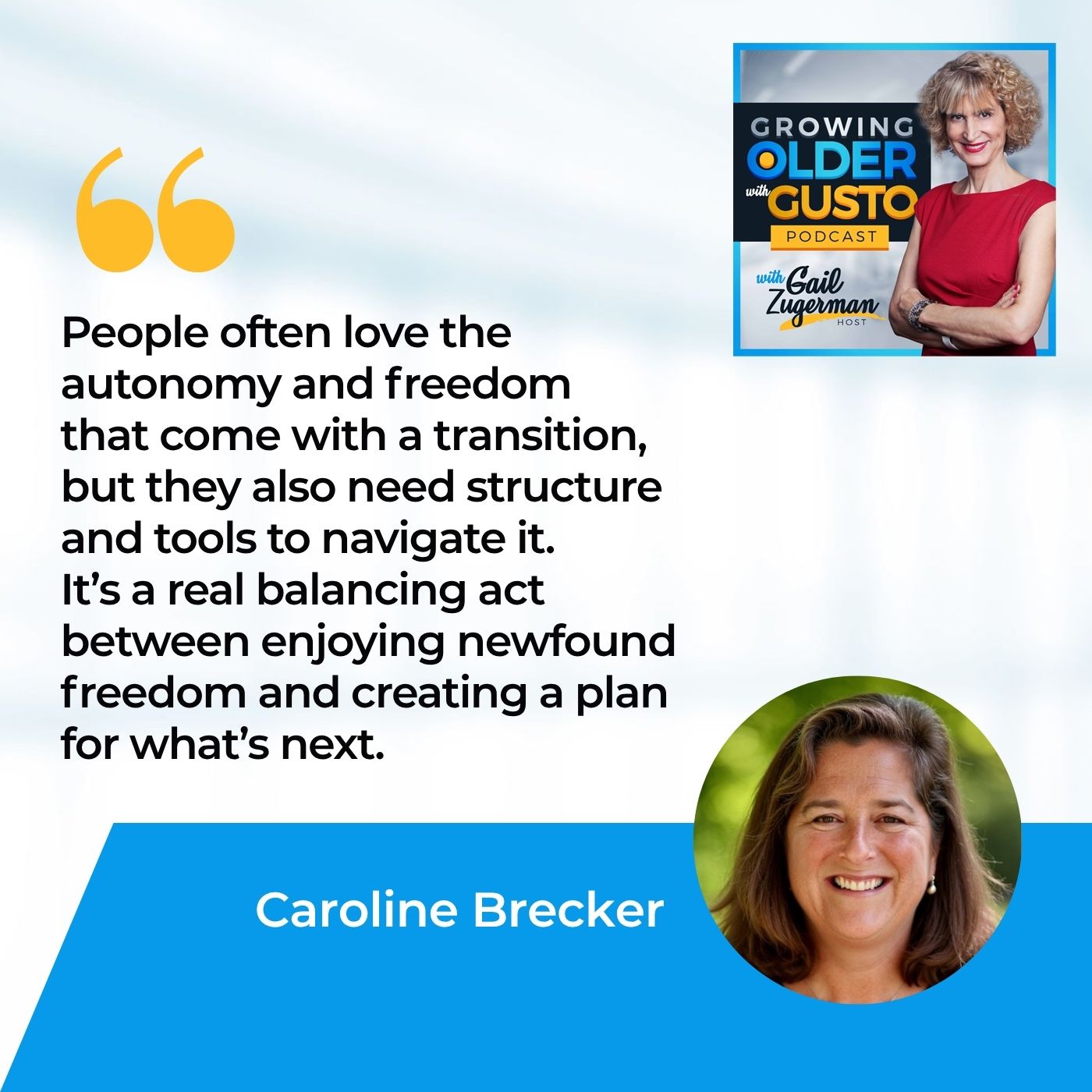
To be honest, I’m not a rugby player.
Nor am I.
Campbell was a rugby player at university.
Campbell who couldn’t be with us is also a co-founder of Third Half Advisors.
As we were thinking about what a good name would be for this program, he was reflecting on his university days where rugby is one of the few games where the opposing teams go to the bar afterwards and enjoy the company of each other and the competition melts away. People just enjoy the camaraderie and the stories of the game, which is analogous to this dividend part of life and that, “This should be the best part of our lives when we are at a point where we can enjoy the fruits of our labor, the competition, and the warrior part of our life.”
Reflect and enjoy each other and the community. Also, it’s called the third half but in addition, it’s that incongruity third half signaling math complication of later life. We don’t know how long we’re going to live. Is it a full half? It fit nicely in this celebratory third half, which is what rugby players call that and a little bit of the unknown for what this the stage of life is for many people. It stuck and we’ve continued to use that name.
Polly, you’re the strength coach. Tell us what that means.
During major transitions, people often lose touch with what truly energizes them. They may recognize their talents but forget what they love to do most.
Using StrengthsFinder
All of the participants in our programs take the Gallup StrengthsFinder Assessment. This is a tool that we have found is incredibly empowering because sometimes, when people are in this big transition, they’ve lost track of what their greatest energy comes from. They may know their talents but they may have lost track of, what is it I love to do most of all? The StrengthsFinder assessment is a scientific based tool designed by a large group of organizational psychologists from Gallup that has high reliability and validity. Almost 5,000 people a day take it.
What we know about it is that one people can name and their strengths, they have a much more likely to be successful and they can create a strategy that is going to be life-giving because they’re in their strength zone. We use it as a tool for coaching, programmatic design, and also for just following and tracking our people to check in, how are you doing? Where are you getting stuck? Some of our greatest weaknesses are when we’re misusing some of our greatest talents.
Walk me through if somebody were come to Third Half Advisors. What happens initially? Tell our readers a little bit about your process.
I’ll just start because this is the part where I love. We sit with people, Caroline, Campbell and I and we hear their story. We listen in to hear like what’s going on, what’s going well, what’s exciting you, what are you worried about, and where are you stuck. By listening to them and understanding where they’re coming from, we can help direct them to which of our program options is going to be the best fit.
We have a couple of modalities. One is virtual programming born with many organizations during COVID. We have a group program that is what we call the Blitz version, which is to chunky days of group conversation coupled with individual coaching. As Polly mentioned also, we have one-on-one coaching as well. There’s an independent series that people can take. That’s the virtual realm. In addition, we have in-person retreats. We have both our own and we work with affinity groups to have programs that lasts anywhere from one day to two and a half days. Those are also extracted.
Where are those retreats held usually?
They’re all over the country. We’ve had them everywhere and continue to build that piece out because people seem to be craving getting together. As a follow-up, we have what we call Lift Series, which is topical information from experts. It’s meant to be interactive on Zoom to help people follow up with things that are on their minds around managing the portfolio life.
Age doesn’t necessarily have a number—it depends on mindset. Some younger people act much older, and some older people remain youthful in spirit.
For us, we are launching a executive women’s membership group that’s happening and then we will additionally be having a Third Half membership model in the fall. Again, that’s to help people think about everything from creative pursuits to board membership, being a director to consulting work to work travel. Those are all the things we’re working with clients on.
I keep getting things on LinkedIn myself. I don’t know if they’re bogus or not, about, “We want you to be on our board or whatever.” I don’t have an interest in that but I’m not sure they’re even legitimate. It’s through LinkedIn.
I’m getting as well a lot of different types of solicitations. I’m not sure where they’re not necessarily coming from. I would say the board work in general that they have is emblematic of what people love to do because it’s flexible. It doesn’t require a consistent obligation. The construct of it is nice because a couple times a year, potentially. You have a group of interesting people around a common goal in the company.
Often, for public companies, there’s either equity or potentially compensation associated with it. What I would say, though, is boards and board membership are not all created equally. To Polly’s point, you want to be careful when you go on a board that it’s a role that you want. If you spent your whole career on governance and that’s not something that likes you up. Don’t join a board where you’re head of governance all of the sudden because filling a calendar for our group, what we’re finding is that’s not energizing.
We want to be careful with our clients to make sure it’s what they’re moving towards of burning yes. Not just building their calendar with stuff to spend time on. The essence board work is appealing but it can be created in other ways like consulting and other types of flexible opportunities. To Polly’s point, we want to make sure these are very individual conversations around what those next stage looks like. I would say no to people that are going the same way.
Caroline, do you notice any trends among different ages? In other words, if people come to you who are, let’s say, 65 or 75 maybe or maybe a little older. Are there any trends of what these people end up doing?
It’s interesting because I don’t know if chronology is the factor more than curiosity. To me, I see amongst all age groups that curiosity dictates the next step. Clearly, people who are in their later 70s and 80s have slightly more challenging health experiences. They may also be with a partner who’s having nice experience. That caregiving role is something that’s entering in more explicitly for that age group but Polly, I’m curious about your thoughts as well. Not to sound cliché but age doesn’t necessarily have a number because it depends on the mindset. There are some much better people who act much older and vice versa. Polly, maybe you want to add in your thoughts.
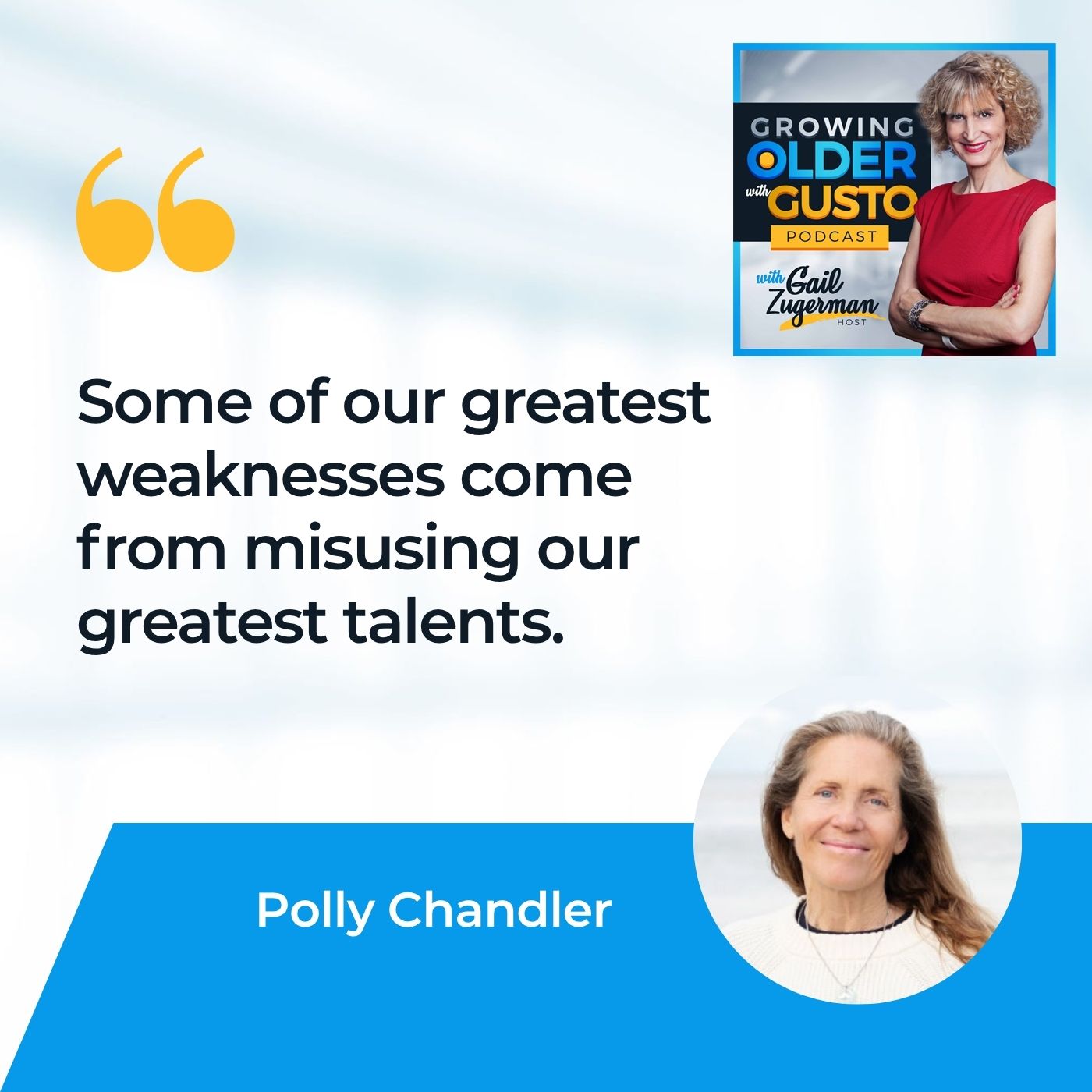
One of the beauties of the Third Half Advisors is we attract anybody from 40 years old to 80 years old and all points in between. It’s the cross pollination of these different ages that has helped us to see that there are certain patterns. No matter where you are, whether you’re 40 or 50 or 60 or just about to leave your job or been out of work for ten years. People can support, give guidance, and reflect.
By being on this familiar path of transition, I would agree with Caroline. It’s not so much how old you are as much as a mindset of, what is it I’m longing to do most of all that’s going to give me a life filled with joy and energy? Who are the people I want to have walking with me on this journey? What we’ve noticed is we can have this beautiful pair of a 45-year-old sitting with a 68-year-old and have so much in common. It is those commonalities that they are able to build the next chapter for themselves.
You’re right. I live in a community where there’s people of bearing ages and it is your commonality, whether I have friends who are older than I am or younger that draw you together.
The commonality of purpose or feeling like you have a strong sense of purpose is ageless. We do know that there’s 33% lower risk of a stroke and 22% of client for people cross the board who have those strong sense of purpose. That is very important no matter what age you are to keep that sense of purpose. That’s why it’s challenging to have the words like retirement, which means to withdraw. That is technically definition of it and we don’t want anyone to be withdrawing.
I don’t like word senior. I wish they was another word for senior.
The other thing that’s complicated is the word reinvent because for many people, this is their shot at being authentic and it’s not they have to reinvent themselves. It’s more about finding the core of who they are and the values that resonate for them that maybe late all along. Some of our exercises take people back to early or dreams and hopes. What we do and why the Gallup StrengthFinder is so helpful is we’re focusing on the positive people and the essence of them. We’re not trying to change them or make them someone else necessarily. That’s also important.
Let me ask you this. When somebody comes to Third Half Advisors, the first step would be to maybe sit down with Polly or with Caroline or Campbell or whatever and you do this profiling and you help them figure out. What’s the timeline on that?
The community piece is so valuable, and the isolation people feel after leaving the workplace can be profoundly untethering.
It’s driven personally by our clients. Some people are, as you can imagine, we have some successful executives who want results right away. We have to manage those expectations, but sometimes it’s a year-long process. This is definitely a very iterative process. Not a one and done type of thing. The timeline is person specific.
We try to use tools that they can bring with them on the journey to for however long they want to be engaged in all the unique and wonderful things that a life has to offer. We give them a toolkit that they might use, helps them, they get started, and it can reimagine what’s next. Three years from then, it might shift again because there’s a change in health, location, or in family structure. They have this toolkit they can go back to and then they sometimes come back to us for a refresh or conversation or coaching session.
We like to see ourself is not a one and done company. We want to get people launched in onto their next chapter and season of life but that’s why we have these lifts series and retreats. We’re trying to encourage people to come back because just like purpose. It’s one of the things we all have in common, so is community and having strong sense of community is one of the key things to people traveling together on this.
We find people coming to our retreats and they start to form friendships and support each other. We had an example where this group of women were on a retreat and there was a little affinity group of people who were taking care of their parents. They were talking about how hard it was. They were working and had parental care. About ten days after the session ended, one of them lost her father. The outpouring of love from the participants in this group sympathizing and empathizing, what can we do, we’re here for you. It was unbelievable how quickly this group of people who had only spent two and a half days together rallied around this woman who lost her dad.
That’s so nice. That’s a great story, Polly.
It’s powerful.
Importance Of Community
The community piece is so valuable and the isolation people feel after they leave their workplace is very profound for people and untethering. We talked about the honeymoon period of leaving your work and this dip part. Our job is help with the dip because it can feel very dislocating in the following months of changing workplace.
It’s been a pleasure talking to both of you. If there’s anything else you’d like to tell our readers, they sure like to hear because this has been a fascinating conversation, useful and helpful. Anything else? It’s been a pleasure.
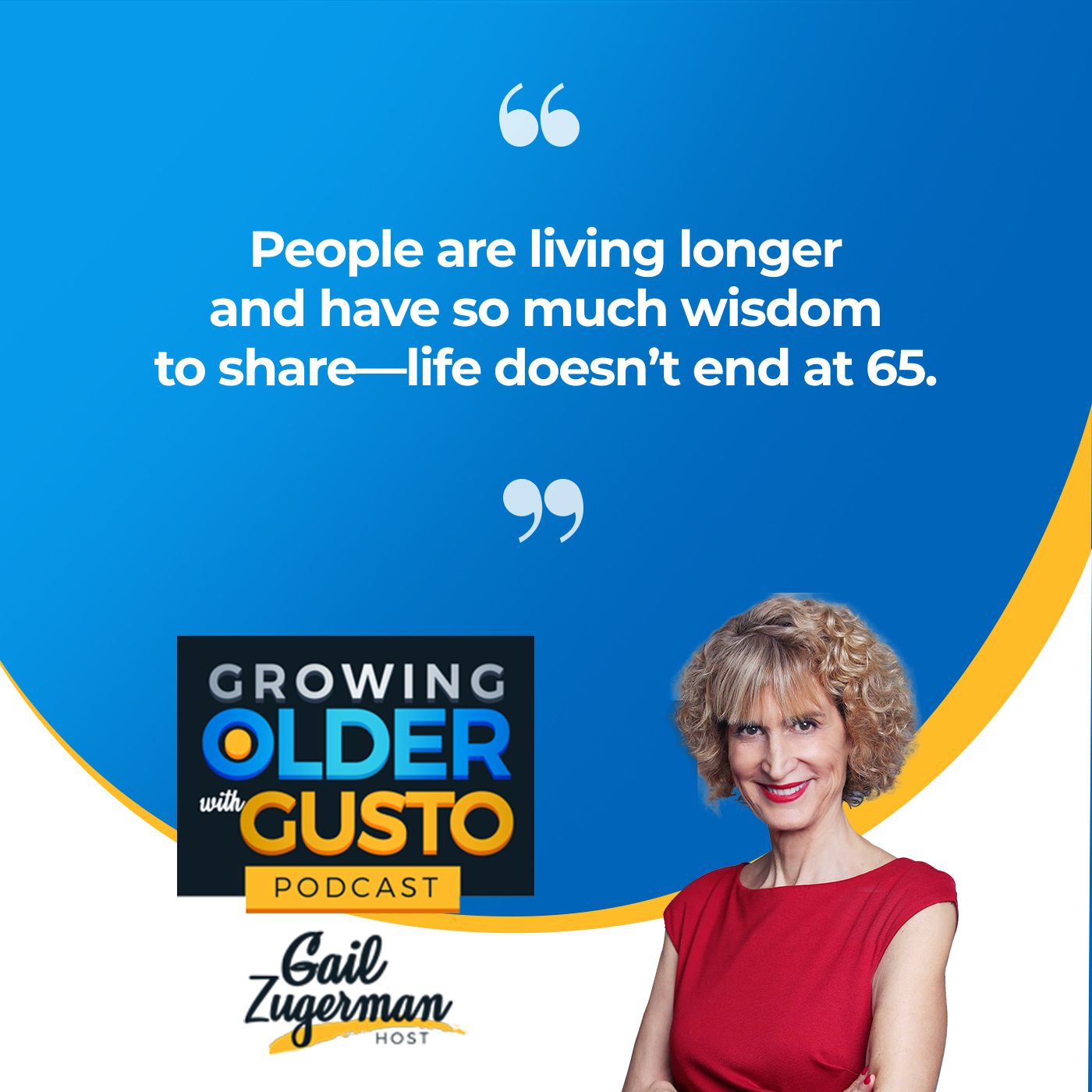
The more that we can support each other in this phase of life and continue to reach out for help on this. It’s important both for men and women. We hate to hear people silently suffering around this. We certainly hope that people do feel comfortable talking about this because it is a real and challenging thing that our society is facing. Age is a thing in our country and we need to pivot and think about what mastery and community looks like especially as people’s families tend to disperse more and community and clan is changing for many people as they age.
That was the basis for my starting this show. I feel that older people and we’re living longer have so much wisdom to dispense and your life isn’t over at 65. That’s why I have a lot of older people on the show, too. Much older than you, Caroline and Polly, but it’s been a pleasure. How would my readers reach you if they want to reach out to you? What’s the best way?
It’s through our website that they’re able to communicate with us. That’s hopefully pretty obvious way to just contact us. The website is ThirdHalfAdvisors.com. Gail, you’re doing wonderful work as well. Keep on as they say.
Thank you, Caroline. It’s a pleasure to meet you both.
Thanks for inviting us.
Bye-bye.
Thank you, Gail.
Important Links
- Caroline Becker on LinkedIn
- Polly Chandler Website
- Third Half Advisors
About Caroline Becker
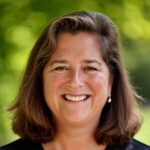 Co-Founder
Co-Founder
Accomplished executive, savvy networker, passionate advocate. After more than 25 years of experience in the financial services/investment world—with Bankers Trust, Chemical Bank, and the J.P. Morgan Private Ban—Caroline understands how to synthesize client needs, align them with sustainable solutions, and execute with precision.
About Polly Chandler
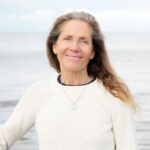 Program Designer, Senior Coach & Facilitator
Program Designer, Senior Coach & Facilitator
Polly is expert in the Clifton Strengthfinder, a critical tool for those transitioning into their Third Half and a fundamental part of our core day. Polly helps people articulate their strengths in the context of what brings them joy and energy, providing clarity and direction for members of our community by connecting what people do well to their happiness and purpose.
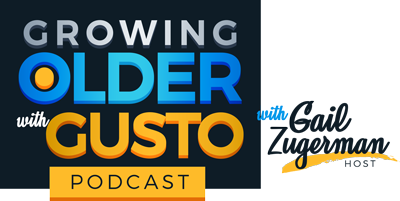

0 Comments